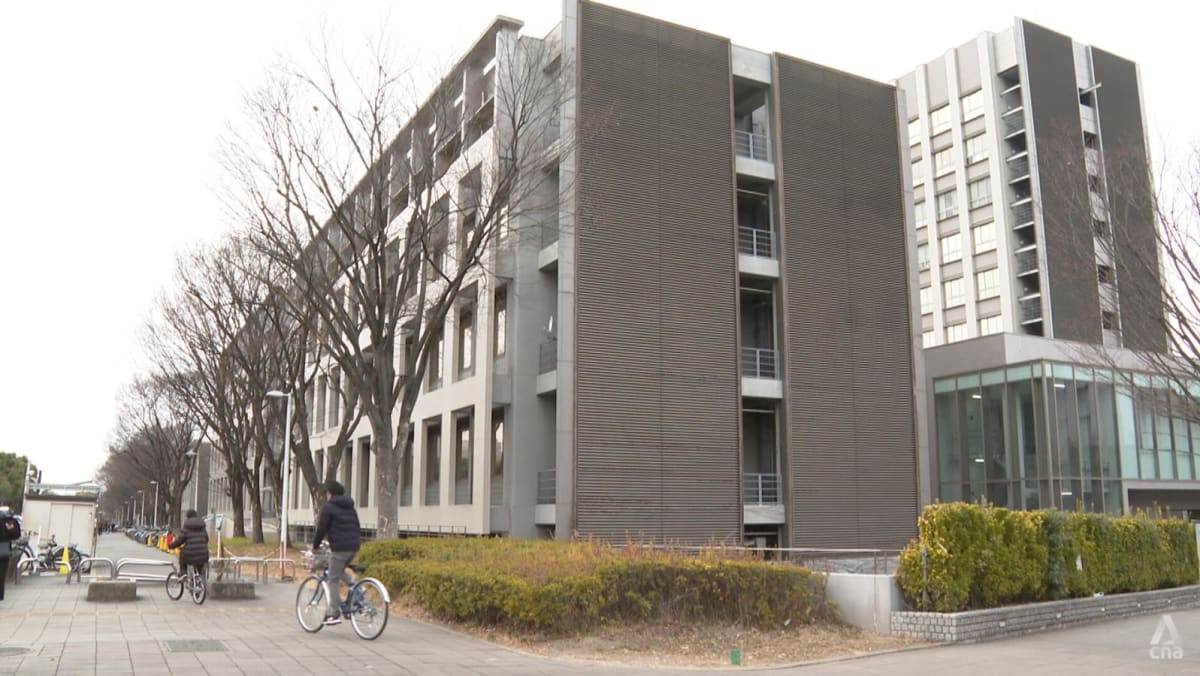TOKYO: In 2001, Japan set a target to win 30 Nobel Prizes in 50 years.
The goal was criticised as arrogant when it was first mentioned, with many at home and abroad dismissing it as wishful thinking.
But the nation appears to be inching towards its ambitious goal, with 15 Nobel Prizes to its name since 2000. It racked up the most prizes among Asian countries during that period, and ranked second in the world after the United States.
One common thread is that some of the recipients of the prestigious prize have links to a relatively little-known university in central Japan’s Nagoya City. Since 2000, six professors and alumni of the university have been awarded the Nobel Prize.
For years, Nagoya University was under the shadow of other top Japanese universities such as University of Tokyo and University of Kyoto.
But as Japan entered the 21st century, Nagoya University rose to international prominence with its impressive haul of Nobel accolades. Nagoya wants to be the base for entrepreneurs and capitalists from Japan and beyond.
In 2024, the city will play host to Japan’s largest incubation hub.
WHY NAGOYA UNIVERSITY IS SPECIAL
Nagoya University’s ability to inspire future Nobel Laureates achievements is because of its conducive conditions, its president Professor Naoshi Sugiyama told CNA.
“We have an environment where we can freely discuss with each other. Japanese society is known to be hierarchical — a professor is like a very, very great person, while students are like slaves. But it’s not the case in this university,” he said.
Prof Sugiyama, who is also a respected physicist, began his six-year tenure in April 2022. He said his mission is to make Nagoya University an institute of choice for the world’s best minds as he expects more Nobel-winning research to be done there.
“We’d like to get the best graduates, best junior faculties, best professors. For that we have to change our environment into English if we want to get the top professors from the US or even from Singapore,” he said.
Salaries will also have to be doubled, he said, adding that such reforms to make the institution “truly internationally competitive” have begun.
THE BEGINNING OF LED LIGHTING
One of Nagoya University’s brightest stars is Professor Hiroshi Amano.
He was awarded a Nobel Prize in physics in 2014 for inventing the light-emitting diode (LED), a semiconductor device which enables bright and energy-saving white light sources.
LED lighting products, which are now commonly used worldwide, produce light up to 90 per cent more efficiently than incandescent light bulbs.
With about one-fourth of world electricity consumption used for lighting purposes, the highly energy-efficient LED contributes to enormous savings in energy as countries confront a climate crisis.
CONCERNS ON RESEARCH CAPACITY
Despite the promise shown by students, there are growing concerns among Japanese scientists that the country’s research capacity has been on a decline.
This is in spite of a 10-trillion-yen government fund. Managed by the Japan Science and Technology Agency since 2021, it pledges to support young researchers, strengthen research infrastructure in emerging fields and promote university reform.
The government has started to intervene in academia, contributing to its deterioration, said deputy dean of the Faculty of Law at Waseda University Masanori Okada.
“Academia must follow the government’s policy. And the government wants results in two to three years, in particular, for studies related to military and industrial developments,” said the public law expert.
“Nobel Prize-level research can only be reached with an appropriate environment. Two to three years of research will not produce results that would reach the level of the Nobel Prize, unfortunately.”
Prof Okada’s first-hand experience in government intervention came when he was among six scholars who were declined appointment onto the Science Council of Japan by then-Prime Minister Yoshihide Suga.
Related:
Nobel Prize award raised to nearly US$1 million for 2023
Commentary: Nobel prize for mRNA vaccine shows power of perseverance
Japan Nobel laureate Koshiba who found neutrinos dies at 94
The Science Council of Japan is the most prestigious academic institution in the country, which counts among its missions making proposals concerning science to the government.
While no explanation was given on the rejection, local media reports noted that the six scholars had one thing in common – they all had a record of criticising the government.
Nobel Laureate Takaaki Kajita echoed Prof Okada’s concern for the declining quality of Japanese research.
“Many of the recent Japanese Nobel Prizes were based on research before the year 2000. Before 2000, Japan was number two in the number of papers in the world,” he noted.
“But now, the number of papers from Japan is decreasing. In particular, the top 10 high-quality papers is decreasing rapidly. So I cannot be optimistic about the future of the Japanese Nobel Prize.”
According to an Education Ministry survey last year, the number of graduate course students is declining and research funds are stagnating.
“Certainly, young children, they’re interested in science. Therefore, still many students study physics in undergraduate courses. However, somehow, they feel that graduate course studies may not be attractive for them,” said Prof Kajita.
“Therefore, many talented students do not go to graduate courses or PhD courses. This is a serious problem for Japan.”





